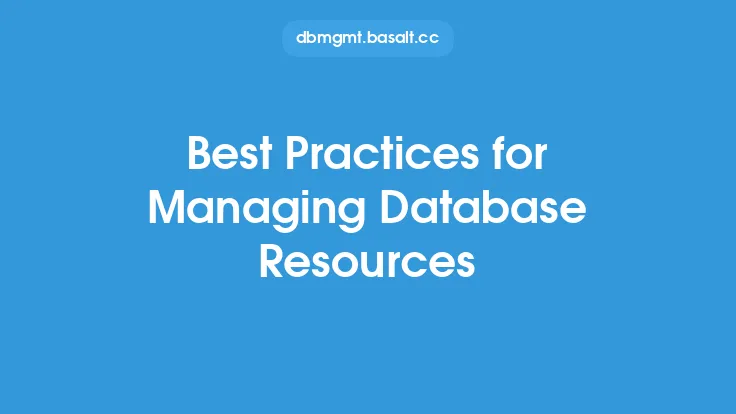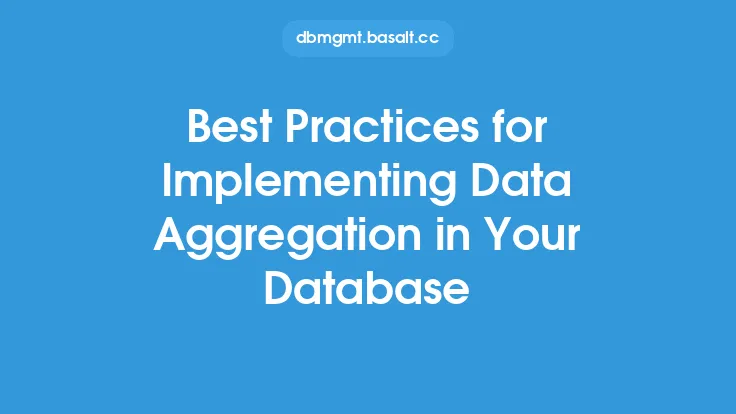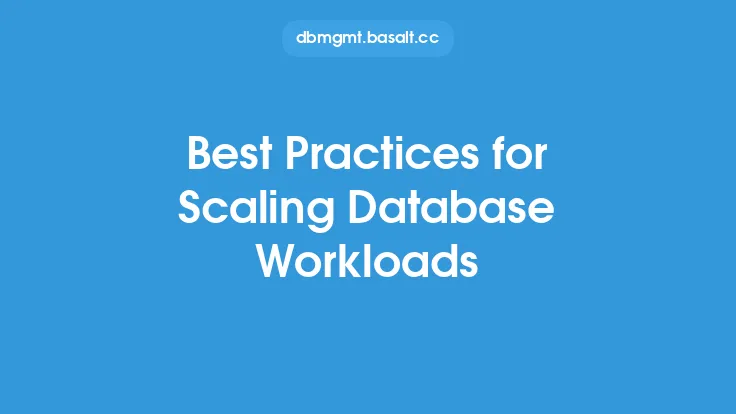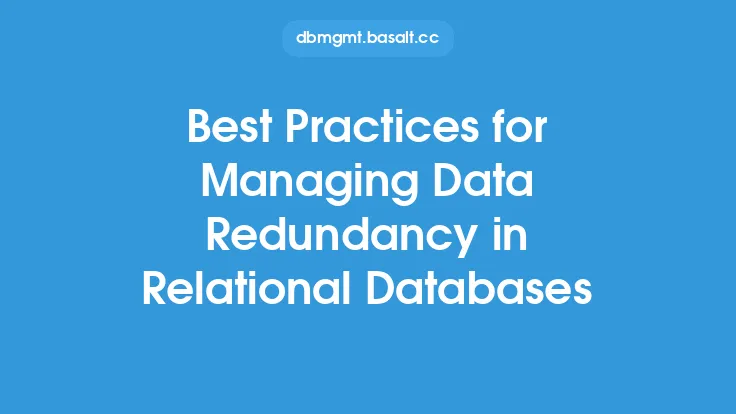When it comes to writing efficient database queries, there are several best practices that can help improve the performance of your database and reduce the load on your system. One of the most important things to keep in mind is to always use specific and targeted queries, rather than relying on broad, general queries that can return large amounts of unnecessary data. This can be achieved by using specific WHERE and JOIN clauses, as well as by avoiding the use of SELECT * and instead specifying the exact columns that you need.
Understanding Query Optimization Fundamentals
To write efficient database queries, it's essential to have a solid understanding of query optimization fundamentals. This includes understanding how the database executes queries, how indexing works, and how to use the database's query optimization tools. By understanding these fundamentals, you can write queries that are optimized for performance and that take advantage of the database's capabilities. For example, understanding how the database uses indexes to speed up query execution can help you to design more efficient queries. Additionally, understanding how the database's query optimizer works can help you to write queries that are optimized for the specific database system you are using.
Using Indexes Effectively
Indexes are a crucial component of efficient database queries. By creating indexes on columns that are frequently used in WHERE and JOIN clauses, you can significantly speed up query execution. However, it's also important to avoid over-indexing, as this can slow down write operations and increase the size of your database. To use indexes effectively, you should regularly monitor your database's query patterns and adjust your indexing strategy accordingly. You should also consider using covering indexes, which include all the columns needed to answer a query, to reduce the number of disk I/O operations required.
Optimizing JOIN Operations
JOIN operations can be a major performance bottleneck in database queries. To optimize JOIN operations, you should use efficient JOIN algorithms, such as hash joins or merge joins, and avoid using nested loop joins whenever possible. You should also consider reordering the tables in your JOIN operation to reduce the number of rows that need to be joined. Additionally, using indexes on the columns used in the JOIN operation can help to speed up the join process.
Avoiding Correlated Subqueries
Correlated subqueries can be a major performance killer in database queries. To avoid correlated subqueries, you should use JOIN operations instead, or consider rewriting the subquery as a derived table or a common table expression (CTE). You should also consider using window functions, such as ROW_NUMBER or RANK, to avoid the need for correlated subqueries.
Using Efficient Aggregate Functions
Aggregate functions, such as SUM, AVG, and COUNT, can be computationally expensive and slow down query execution. To use efficient aggregate functions, you should consider using indexed views or materialized queries to pre-aggregate data, rather than calculating aggregates on the fly. You should also consider using approximate aggregate functions, such as APPROX_COUNT_DISTINCT, to reduce the computational overhead of aggregate calculations.
Minimizing Database Locks
Database locks can be a major performance bottleneck in database queries. To minimize database locks, you should use transactions judiciously and avoid holding locks for extended periods. You should also consider using row-level locking instead of table-level locking to reduce contention between concurrent queries. Additionally, using snapshot isolation or other concurrency control mechanisms can help to reduce the need for locks and improve concurrency.
Monitoring and Analyzing Query Performance
To write efficient database queries, it's essential to monitor and analyze query performance regularly. This can be done using database management tools, such as query profilers or performance monitors, to identify performance bottlenecks and optimize queries accordingly. You should also consider using automated query optimization tools to analyze and optimize queries on an ongoing basis.
Best Practices for Query Writing
In addition to the technical considerations outlined above, there are several best practices for query writing that can help improve the performance and maintainability of your database queries. These include using clear and concise query syntax, avoiding unnecessary complexity, and commenting queries to explain their purpose and logic. You should also consider using version control systems to track changes to your queries and collaborate with other developers. By following these best practices, you can write efficient, effective, and maintainable database queries that support the performance and scalability of your database system.





